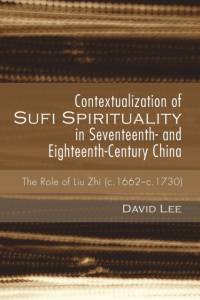Om Contextualization of Sufi Spirituality in Seventeenth- and Eighteenth-Century China
Liu Zhi (c.1662-c.1730), a well-known Muslim scholar in China, published in Chinese outstanding theological works, short treatises, and easy-to-memorize short poems on Islam. He encountered various challenges in his interpretation and transmission of Islamic texts. First, traditional Arabic and Persian Islamic texts used Arabic and Persian concepts to explain Islam. This book answers the question, did Liu Zhi communicate difficult Islamic concepts? Second, Islam has insisted on monotheism. This book discusses whether and how Liu Zhi integrated the basic religious living of the Hui Muslims into their pluralistic Chinese culture. Finally, Muslims have settled over hundreds of years in various parts of China. Were Liu Zhi''s works able to make a substantial difference in the life and thought of Hui Muslims in China? Liu Zhi''s success was due to his method of contextualization, integrating the Muslim way of life into Chinese culture. This book is an in-depth study of Liu Zhi''s contextualization of Islam into Chinese culture that argues that his contextualization has not deviated from the basic tenets of Islamic belief.""Scholars have previously focused on the innovative nature of Islamic contextualization in seventeenth- and eighteenth-century China. Lee''s work goes further, firstly, by focusing on (1) a significant Muslim from the network of scholars in this period, Liu Zhi; (2) his uniquely indigenized use of the Akbarian tradition both for teaching and apologetics; secondly, by combining the use of (1) his own translations with the existing ones; (2) selected Western sources with the previously unknown Chinese secondary sources.""--David Emmanuel Singh, OCMS, Oxford ""This is a brilliant study of the contextualization of Arabic and Persian Sufi Muslim writing for a Chinese audience by one of the most influential Chinese Muslim writers, Liu Zhi (c. 1662-c. 1730). David Lee has shown clearly how Liu Zhi translated key Sufi works using Buddhist, Daoist, and Confucianist concepts to encourage the reception of Islam as a fourth recognized tradition alongside the other three.""--Mark Beaumont, Senior Lecturer in Islam and Mission, London School of Theology""In this book, Dr. David Lee has demonstrated how Liu Zhi, a Hui Muslim scholar in seventeenth- and eighteenth-century China, had successfully integrated the Muslim way of life into Chinese culture by means of contextualization with Confucianism at that time. This not only is a significant contribution to the study of Islamic spirituality in Chinese culture, but also sheds light on the use of contextualization to explain one''s faith in other cultures."" --Dr. Andrew Lam, Associate Professor of Theology at Evangel Seminary in Hong Kong""Reverend Dr. David Lee''s book is a significant contribution of analyzing the legacy and translating Liu Zhi''s literature to the international readership. By conceptualizing Liu Zhi''s active engagement of Islamic texts within Chinese traditions and contexts in the translation-conversation framework of contextualization, Lee''s contribution will not only stimulate scholarly interests in exploring Liu Zhi''s work within and beyond Nanjing Islamic tradition; it also provides an important theoretical outlook to further study the contextualization of other Islamic texts in the period of Ming-Qing China."" --Wai-Yip Ho, Author of Islam and China''s Hong Kong: Ethnic Identity, Muslim Networks and the New Silk Road David Lee is Associate Professor of Theology at Evangel Seminary in Hong Kong. He has served as Senior Pastor in the Chinese Church of London.
Visa mer

